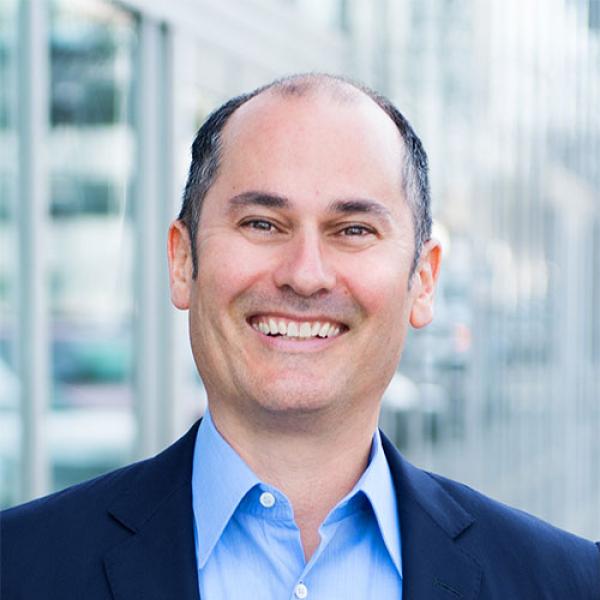Back to Blog
Aug 10, 2016
Keeping Up With The Kalish's: Diets That Prevent Health Problems Vs. Diets That Can Cure Health Problems
by Dr. Dan Kalish
Image

Every single functional medicine teacher I was trained by operated under the assumption that patients would require animal protein to heal. For our steadfast vegetarian patients we’d have to supplement with protein powders and/or free form amino acids to get adequate protein levels for cellular repair and rebuilding to occur. In the bubble of chronic illness that I’ve worked within for over twenty years clinical experience has reinforced this. Many patients come to us unable to eat carbohydrates, sensitive to gluten and even non-gluten grains and with a whole host of problems from leaky gut to blood sugar instability that require them to avoid many foods and rely heavily on animal protein and fat. Then we have the occasional confusing patient who is made much worse with a diet that includes animal protein and fat with each meal day in and day out.
I’ve always thought that the more damage to the body tissues, the more repair a patient requires, the more they will need to rely on health protein and healthy fats. Mostly this has meant meat, fish or eggs with every meal and various forms of fat from animal fat present in meat to olive oil and coconut oil and so on. The concept being that enzymes that need to be built, we need to boost up the Phase 2 liver detox pathway sulfur amino acids, the amino acids required for neurotransmitter production, the list goes on and on. When we add in supplements for liver support, brain support, free form amino acids and protein powders and patients are getting adequate amino acids and good quality fat we see improvements. I understand when we invoke stress physiology and are in a constant fight or flight response that we flip a switch and become catabolic, burning through available protein at a greater rate sometimes than we can resupply easily, requiring meat with every meal and additional amino acid supplementation on top of that.
All these years though there have been the patients that just responded horribly to these diet concepts. Cholesterol levels going up, fatigue and digestive problems getting worse. I explained this away with the idea of a damaged gut unable to digest meat or to other logical alternatives. Then about three years ago I found myself in a health pickle. I had gained weight, gradually and upon turning age 50 I was up to 167 pounds from my historical healthy weight of 147. I’d gained exactly one pound a year for twenty years and it was so gradual I just ignored it. Somehow turning 50 triggered an evaluation moment and I realized I needed to drop twenty pounds. In order to accomplish the weight loss I worked with a nutritional counselor and started to explore diets outside my comfort zone. During the twenty years of weight gain I’d been eating gluten free (not perfect but pretty good), hormone free, healthy meat, farm raised eggs, dairy mostly from goat milk, the usual vegetables, small amounts of fruit and grains.
I quickly dropped 19 pounds by reducing (yes reducing) my cardiovascular exercise and going to a balanced diet still eating meat but with smaller portion sizes, this took about three months. Since I’d in a sense broken free of my typical “I’m a functional medicine doctor diet, lots of fat and animal products in relatively unlimited portions are fine” program, I began to experiment with food in general. For 3 weeks I ate unlimited fruit, vegetables and grains with zero fat, no extra oils, no animal products. I anticipated that by day 3 my blood sugar would have collapsed and I’d be craving sweets but in a fascinating turn of events I felt great on that diet. I spent one month eating only lean animal protein, chicken breast, lean pork, egg whites along with salad greens. That was interesting and pretty boring. The list of diets goes on and what I discovered was I felt good in different ways on all the various diets I implemented. There was not a single combination of foods that made me feel poorly, some diets were harder than others to stick with and I had to have more cheat days with some diets than others but in general I found my body seemed to get used to just about any combination of foods I threw at it.
Then about a year ago I decided to do a complete life inventory and go on the diet that I’d felt my best on. Turns out at age 18 I traveled to Japan and lived in a Zen monastery for six months and that was when I felt truly at my best with food. We ate simply. Brown rice with most meals, several vegetable dishes including pickled vegetables with every meal and occasional fruit as a treat. The temple was also a farm and we grew our own rice and vegetables so we were essentially eating what we had available. There was occasional fish, meat and eggs, typically 2-3 meals a week if we ate out at another location or a local fisherman gave us something or a neighbor left us eggs. From age 18 through my early 20’s I was mostly vegetarian, had my own wheat grass juice I made, sprouted everything you could imagine and kept it on the vegan, organic side of life. When I started chiropractic college I carried through with this type of diet although in the rush of school and clinic hours I didn’t have much time, I ate oatmeal most mornings and I would eat a tofu sandwich on organic whole wheat bread with a bag of raw carrots, celery and cucumbers every day for lunch for many years.
Once I started seeing patients things fell apart. I would skip breakfast and have an Ultraclear Plus shake instead (protein/detox powder). Oftentimes I’d skip lunch also and just grab a second shake. By 7pm I’d be so exhausted and hungry that I would power down a huge dinner and have dessert(s) too. Looking back this is when my gradual weight gain started. I was exercising every day, cycling to work and back so I didn’t gain large amounts of weight and I was too stressed about my life to care about changing my diet patterns. Once I’d finished school and was in the functional medicine fold I started to eat for blood sugar control, I figured out how sensitive to gluten I was, I did food allergy testing on myself and started to eat meat with each meal, also increasing my fat consumption with raw butter, olive oil, coconut oil, avocados, you name it.
Now 34 years later, after my first investigations of a meat free diet I’m right back where I started. Now I’m eating a “whole foods plant based diet” which to me is different than the old school vegan or vegetarian diet in some specific and important ways. The “whole foods” part means, to me, deemphasizing processed foods including flour. So it means oatmeal for breakfast from steel cut oats, rather than gluten free bread or gluten free pancakes. It means potatoes or quinoa rather than pasta. The “plant based” part seems the most important. It means plants (translated by my mind as vegetables and fruit) with every meal every day. And many of them. Several vegetable dishes with every meal, fruit with breakfast and for a night time treat. Typically I’ll do my old cereal bowl trick, where I’ll start off every lunch with a cereal bowl full of raw veggies and start off every dinner with a cereal bowl full of cooked vegetables. This is common language translates to a salad with lunch and various cooked vegetable dishes for dinner. It seems to be very important to start every meal with the vegetables that creates a sense of fullness and limits the amount of grains, beans and potatoes that I need to feel full. Also, I’ve noticed if I start the meal with rice or potatoes then I often over eat the starchy carbs and get full before I eat any significant amount of vegetables.
Where do I get my protein from? That concern has bothered me more than any other. When I first went back to this style of eating I really believed I was going to feel horrible in a few days when in fact I started feeling better and better. I sleep better, have more energy, can exercise more and get more done without all that animal protein. Will this last forever? Who knows. Will this work for everyone? I’m sure not. I do believe that an otherwise healthy person without any extraordinary protein needs brought on by extreme stress, leaky gut, a toxic liver, depleted brain chemicals, who has also taken the time to get enough healthy fat in the past could benefit from this type of diet.
I know doctors in general tend to recommend the diet that works best for them for everyone so I’m hoping to avoid this common trap. Also I know from my spiritual training that killing and eating animals can trigger alarm bells for certain religions and can be harmful for specific spiritual training techniques. Most religions and most spiritual traditions seem to be fine with meat but that can be a consideration.
For now I’m sticking with the whole foods plant based diet with the occasional cheat day embracing a grass fed burger or spicy Italian sausage.

